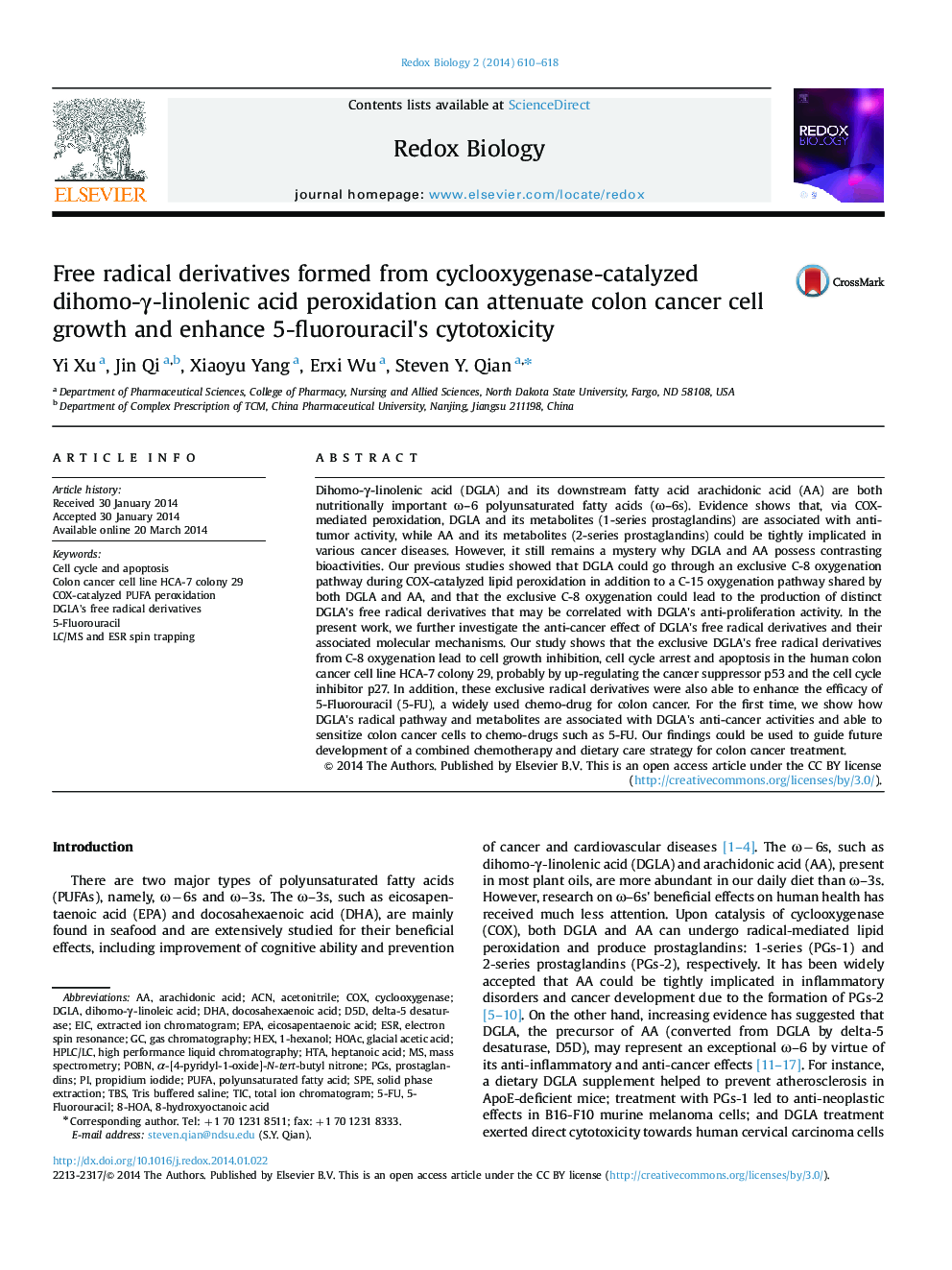| کد مقاله | کد نشریه | سال انتشار | مقاله انگلیسی | نسخه تمام متن |
|---|---|---|---|---|
| 1923045 | 1535848 | 2014 | 9 صفحه PDF | دانلود رایگان |

Highlight
• The free radical metabolites from DGLA peroxidation may possess anticancer activity.
• The DGLA׳s radical derivatives could induce cell cycle arrest in colon cancer cell.
• The DGLA׳s radical derivatives could induce apoptosis in colon cancer cell.
• The DGLA׳s radical derivatives could sensitize colon cancer cell to 5-fluororacil.
Dihomo-γ-linolenic acid (DGLA) and its downstream fatty acid arachidonic acid (AA) are both nutritionally important ω–6 polyunsaturated fatty acids (ω–6s). Evidence shows that, via COX-mediated peroxidation, DGLA and its metabolites (1-series prostaglandins) are associated with anti-tumor activity, while AA and its metabolites (2-series prostaglandins) could be tightly implicated in various cancer diseases. However, it still remains a mystery why DGLA and AA possess contrasting bioactivities. Our previous studies showed that DGLA could go through an exclusive C-8 oxygenation pathway during COX-catalyzed lipid peroxidation in addition to a C-15 oxygenation pathway shared by both DGLA and AA, and that the exclusive C-8 oxygenation could lead to the production of distinct DGLA׳s free radical derivatives that may be correlated with DGLA׳s anti-proliferation activity. In the present work, we further investigate the anti-cancer effect of DGLA׳s free radical derivatives and their associated molecular mechanisms. Our study shows that the exclusive DGLA׳s free radical derivatives from C-8 oxygenation lead to cell growth inhibition, cell cycle arrest and apoptosis in the human colon cancer cell line HCA-7 colony 29, probably by up-regulating the cancer suppressor p53 and the cell cycle inhibitor p27. In addition, these exclusive radical derivatives were also able to enhance the efficacy of 5-Fluorouracil (5-FU), a widely used chemo-drug for colon cancer. For the first time, we show how DGLA׳s radical pathway and metabolites are associated with DGLA׳s anti-cancer activities and able to sensitize colon cancer cells to chemo-drugs such as 5-FU. Our findings could be used to guide future development of a combined chemotherapy and dietary care strategy for colon cancer treatment.
Figure optionsDownload as PowerPoint slide
Journal: Redox Biology - Volume 2, 2014, Pages 610–618